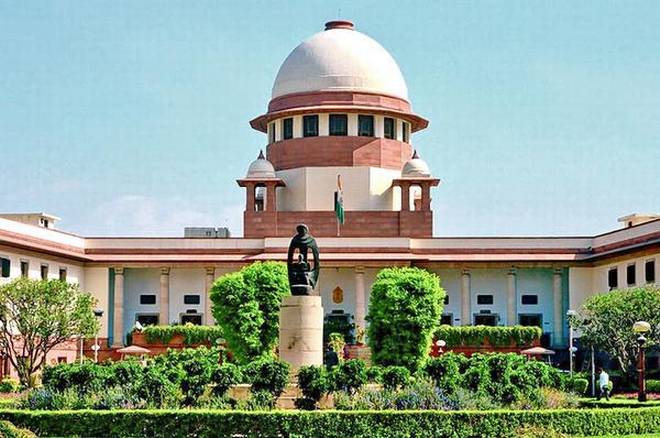The Supreme Court of India on Friday has held that while deciding the application under Order VII Rule 11 of the CPC, few lines or passage from the plaint should not be read in isolation and the pleadings ought to be read as a whole to ascertain its true import.
The appellant herein challenged the judgement of Delhi High Court which affirmed the decision of District Judge, Tis hazari who in turn upheld the order of civil judge allowing the application filed by the respondents/defendants for rejection of the plaint under Order VII Rule 11 of the Code of Civil Procedure, 1908, instituted by the appellant/plaintiff.
The appellant had filed the stated suit for a decree for rendition of true and correct accounts in respect of the interest/commission charged and deducted by the respondent Bank relating to current account of the appellant for the period between 1.4.1997 and 31.12.2000 and also for recovery of the excess amount charged by the respondentBank consequent to rendition of accounts with interest at the rate of 18% per annum from the date of deduction including interest pendente lite realization of the amount and future interest.
The plaint came to be rejected by the trial Court under Order VII Rule 11(d) of the CPC on the ground that it was barred by law of limitation, as it was filed beyond the period of three years prescribed in Article 113 of the Limitation Act, 1963 as applicable to the present case, from the date when the right to sue accrued to the appellant in October, 2000.
The question before the court was whether the plaint as filed by the appellant could have been rejected by invoking Order VII Rule 11(d) of the CPC?
Acting upon the plea, the bench comprising of Justice A.M. Khanwilkar, Justice Indira Banerjee & Justice Dinesh Maheshwari, observed that as noticed from the trial Court judgment, it is evident that the trial Court did not make any attempt to analyse the plaint in the manner predicated in the aforesaid decisions. Even the District Court dealing with first appeal and the High Court with second appeal omitted to do so. It is the bounden duty of the Court to examine the plaint as whole and not selected averments therein.
The Court further observed that in the present case, as noticed earlier, the trial Court had failed to advert to and analyse the averments in the plaint, but selectively took notice of the assertion in the plaint in question that the appellant became aware about the discrepancies in July, 2000, and then proceeded to reject the plaint being barred by law of limitation having been filed in February, 2005.
The Supreme Court was of the considered opinion that the decisions of the trial Court, the first appellate Court and the High Court in the fact situation of the present case, rejecting the plaint in question under Order VII Rule 11(d) of the CPC, cannot be sustained. As a result, the same are quashed and set aside.
Thus, the appeal was allowed and the plaint was restored to the file of the trial Court to its original number for being proceeded in accordance with law.
-India Legal Bureau


